'We had 110 Adivasis who were languishing in jail for nearly five years because it was claimed they were responsible for some blasts.'
'When the time to give the proof came, they had no proof to show.'
'Then the people are let free, totally exonerated, but their lives are totally shattered.'
'Not only their lives, but the lives of their families.'

In Novemmber 2021, the Bombay high court allowed Father (Dr) Frazer Mascarenhas, SJ, to approach the court to clear the name of Father Stan Swamy, the oldest of the 16 Bhima Koregaon accused, who died in hospital in July 2021.
In December 2022, Father Frazer spoke at a media interaction conducted by an independent organisation, 'Mumbai Rises To Save Democracy', which called upon the public and media to raise their voices against the authoritarian State.
Known to speak freely and stand by his principles, Father Frazer, who is now the parish priest at a Mumbai church, tells Rediff.com Senior Contributor Neeta Kolhatkar, "It seems to be a culture now. Anybody dissenting will be treated in this manner. No human rights... It is not limited to any one political party. The evidence shows that a group of political parties seem to be using this in an extensive and deliberate manner."
The first of a two-part interview:
Father Frazer, for the last seven years, the situation in our country has changed. Can we say there is a growing culture of silence?
Well, I think there is lots of evidence on that because starting with what some of us call the 'test case', the Bhima Koregaon case (also known as the Elgar Parishad case), in which my Jesuit brother Father Stan was implicated.
Anyone who is opposing some policy or the other of different governments, presently in power, they are being silenced by what we think is unjust, totally imaginary implication in some serious... so-called offence.
The terror laws at the moment... now we have PMLA also. Though it is a financial law, even that gives power to incarcerate just by accusation.
The use of such laws seems to be increasing against people who are inconvenient to the governments in power.
Although there is evidence to show that this is a deliberate ploy, like when the case comes up.
After 4-5 years, people are being exonerated. Judges then say there is no evidence.
We had 110 Adivasis who were languishing in jail for nearly five years because it was claimed they were responsible for some blasts. When the time to give the proof came, they had no proof to show.
Then the people are let free, totally exonerated, but their lives are totally shattered.
Not only their lives, but the lives of their families. Their reputations are shattered.
So these 110 Adivasis who came out were not jubilant at all. They came out very cowed down, they didn't think anything good had happened to them by being released because they have lost their lives.
They were literally dead although they were walking out free.
Recently there was another person who was released under the same law. But he asked what would he do with his life now.
There has been absolutely no proof of the charges claimed against them.
We are seeing this time and again. Unfortunately, the judiciary hasn't been able to intervene as far as even bail is concerned.
This law (UAPA) is being used indiscriminately across the country, even though the Supreme Court has more or less put a freeze on a similar law, that is sedition.
They did perhaps mention other such laws, but there is no move to put them down or put in place the basic minimum safeguards.
In other words, the law is now not a just law, because it now says the proof has to be with the accused. And only when the government chooses to bring it for trial, which is years later, we may see some relief.
What is also unfortunate is that when these people are in jail, they are subjected to the most inhuman treatment.
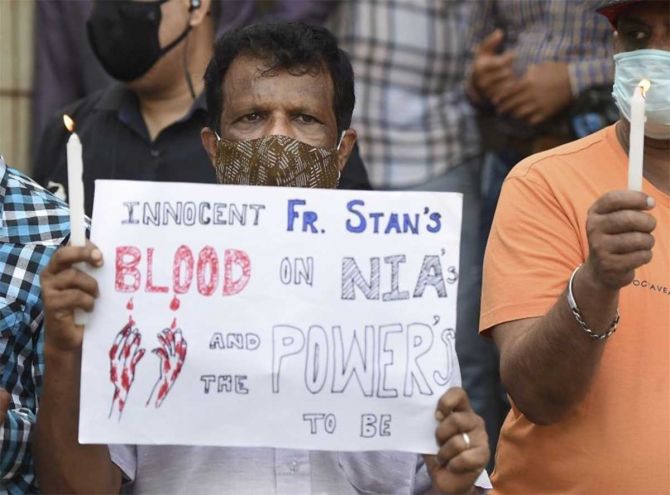
Yes, we have seen that with Father Stan, Sudha Bhardwaj, Vernon Gonsalves and many others. Do they deliberately delay medical intervention or treatment for prisoners who are ailing?
Yes, it is deliberate.
We saw that in a stark case with Father (Stan Swamy) since I was involved in his case.
Even the court did not intervene to give him a sipper.
The judges deferred the hearing till after the Diwali vacation on the matter of the dignity of a person to hold a cup to his mouth to drink water.
Therefore, you can see they are treated very badly.
The evidence we have is that, when he (Father Stan Swamy) got Covid, no treatment was given. Finally, when we heard about it through other inmates, we approached the court.
The court then gave an order for him to go to a private hospital. Just two days prior to be admitted to a private hospital, he had gone to the JJ hospital and they hadn't even taken the basic RT-PCR test.
Now that is strange for a frontline hospital because Covid symptoms were reported when he was in jail. Father Stan Swamy had cough and fever -- it was reported by him -- but they didn't bother to take an RT-PCR.
Finally, the court ordered him to go to a private hospital, which we were grateful for. As soon as he entered the hospital, they did a CT scan of the chest, which was expected for this disease, and the RT-PCR.
You could see his was a deliberate denial of basic medical care at the height of the pandemic.
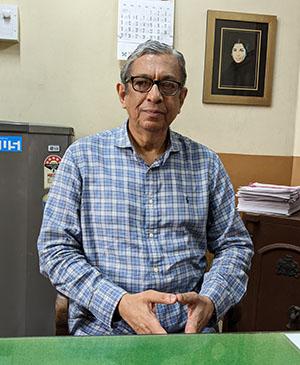 IMAGE: Father (Dr) Frazer Mascarenhas SJ. Photograph: Neeta Kolhatkar
IMAGE: Father (Dr) Frazer Mascarenhas SJ. Photograph: Neeta KolhatkarWhen I asked Father Stan after he was admitted in the ICU, 'You were in the hospital of the jail, did you get good treatment there?'
'Father Frazer,' he said, 'that hospital is a misnomer. All that they have is paracetamol!' And he repeated, 'Paracetamol'. That's what he said.
You could see that they are being treated in a very deliberately cruel way.
I presume as an example to anybody else that this it's not only your freedom that will be taken away, but you will also suffer these type of conditions.
This is the same thing that happened to Vernon (Gonsalves, another accused in the Bhima Koregaon case). A few months ago, he was taken to hospital where he was put on oxygen.
Then, even before he had fully recovered, he was sent back to jail.
The same thing is happening to (Delhi University Professors) Hany Babu, (G N) Saibaba in a very cruel manner. Saibaba isn't able to help himself.
To deny him even basic medical treatment and assistance is really criminal. But I would like to say, this is not really to do with any particular government or party.
It seems to be a culture now. Anybody dissenting will be treated in this manner. No human rights.
We have seen this with Father Stan Swamy when he was in jail. That was under a government that had the Congress as part of the coalition, with the Nationalist Congress Party and the then Shiv Sena.
The NCP had the home ministry, under whose jurisdiction were the jails. So how is it that the NCP, Congress and Sena, how did they mete out this type of treatment? How did they do that?
It is inconceivable, so it is not limited to any one political party.
The evidence shows that a group of political parties seem to be using this in an extensive and deliberate manner.
After the Bhima Koregaon case enabled governments to keep people behind bars indefinitely, only on accusations, the same has been applied to hundreds in Delhi, in UP and in other parts of the country. It has just proliferated.
I think political leaders cannot now be believed. This is the age of 'post truth'.
It's not what they (politicians) say. It's not the words. But it is what they and their governments and their parties do on the ground that is of importance.
People now agree that we are in a post truth world.
We are in a world of make believe, words spoken to catch the imagination of the people and to excite emotions. But you cannot take literally or seriously the words of political spokespersons or political leaders.
Feature Presentation: Ashish Narsale/Rediff.com



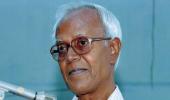



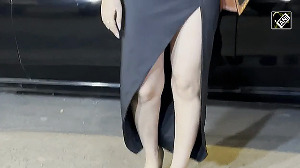
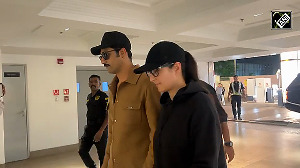
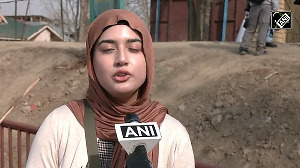
 © 2025
© 2025